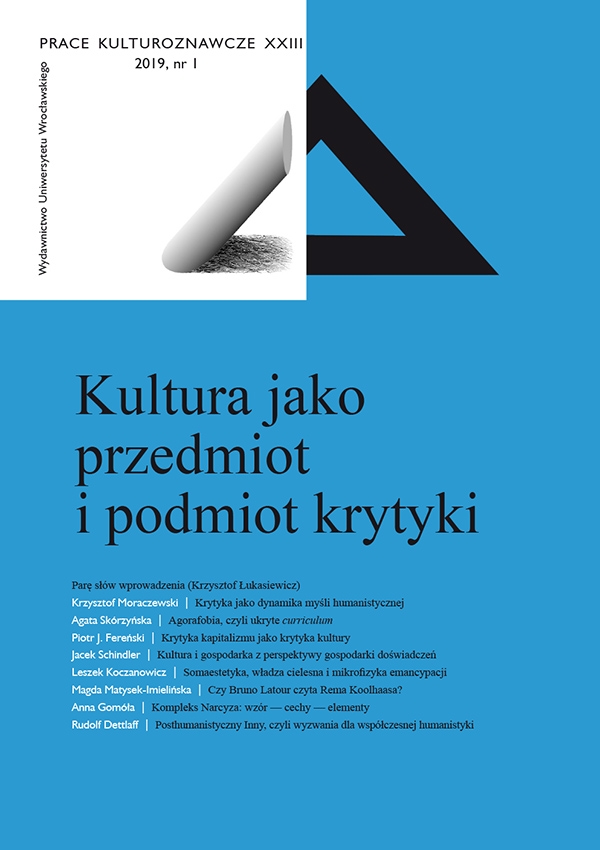

Krytyka — problem nieprzedawniony

Agoraphobia, or hidden curriculum: Academic field and dilemmas of critical intellectualism
The key topic of this volume is the critical attitude in cultural studies. In the article, this topic is understood in a specific way. The ability to conduct critical cultural studies depends on the recognition of the attitude that we can call “public intelectualism” and its opportunities and limitations. According to a well-known concept of Jürgen Habermas, the position of public intellectuals is conditioned by the forms of human interests related to knowledge. However, today the forms of knowledge work, practical and emancipatory need to be rethought, as Pierre Bordieu has shown. Different forms of human interests can be combined in one scientific venture. Futhermore, there is no way to achive the full autonomy of the academic field from the metafield of power and other social fields because of the internal conditions of the academic world. The recognition of these internal properties is the prerequisite of “public intellectualism.” According to the conceptual view of curriculum studies, some of these conditions belong to the so-called explicit curriculum, but the others create a hidden curriculum — the uconscious components of habitus or unarticulated circumstances of the academic form of life. The argument presented in this article is inspired by two sources: firstly by the very important biographical episode in the academic life of Bourdieu who at the end of his career became strongly involved in public criticism of neoliberalism. Secondly, I refer to several public statements of Polish intellectuals who criticised the neoliberalisation of the academy in the context of the present reforms of the public higher education and science. As I try to show, ignoring the hidden curriculum may lead to a specific and risky attitude — agoraphobia — which means the fear of involvement in the public sphere and helplesness in the defence of critical research and emancipatory forms of academic knowledge.